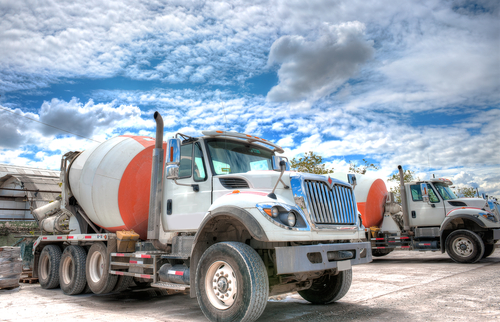Truck Manufacturer Settles Alleged RCRA Violations
 |
In mid-November 2014, one of North America’s largest heavy-duty truck manufacturers settled with the Environmental Protection Agency (EPA) for a range of alleged RCRA violations at its Pennsylvania truck assembly plant.
RCRA is the federal law that regulates how covered facilities manage the treatment, storage, and disposal of hazardous waste, which includes everything from hazardous wastes produced in processes to discarded commercial products. In the case of the truck manufacturer, the EPA inspected the facility and “cited the company for several RCRA violations involving hazardous waste stored at the facility, including solvents and paint wastes.”
Here’s a look at the alleged violations and the applicable RCRA regulations that apply to facilities:
Forget expensive calls to lawyers and consultants. With Enviro.BLR.com, you get instant access, 24/7. Try it out today and get the 2015 EHS Salary Guide, absolutely free. Download Now.
Operating a hazardous waste storage facility without a permit or interim status. Facilities that meet the “designated facility” requirements as a treatment, storage, and disposal facility (TSDF) under RCRA must have a permit issued by the Regional EPA Office or a RCRA-Authorized State in accordance with the requirements of 40 CFR 270. Facilities that generate hazardous waste should also consult 40 CFR 262.34, which provides conditions that generators must satisfy in order to be excluded from RCRA permit and TSDF requirements.
Failure to comply with regulations on hazardous waste recordkeeping and marking. RCRA TSDF owners and operators are required to keep certain records and submit reports to the EPA at regular intervals. Recordkeeping and reporting requirements are found at 40 CFR Part 264 Subpart E (for permitted facilities) and 40 CFR Part 265 Subpart E (for interim-status facilities).
Depending on a facility’s generator status (i.e., conditionally exempt small quantity generator (CESQG), small quantity generator (SQG), or large quantity generator (LQG)), recordkeeping requirements may include an EPA identification number, biennial RCRA hazardous waste reports, and use of the hazardous waste manifest management system. RCRA requirements for marking hazardous waste containers and/or tanks are provided in 40 CFR 262.34(a)(2) and (3) for both SQGs and LQGs.
Failure to comply with contingency planning safeguards and failure to comply with contingency plan requirements. The contingency plan must be designed to minimize hazards to human health or the environment from fires, explosions, or any unplanned sudden or nonsudden release of hazardous waste or hazardous waste constituents to air, soil, or surface water. The contingency plan provisions must be carried out immediately whenever there is a fire, explosion, or release of hazardous waste or hazardous waste constituents that could threaten human health or the environment. RCRA emergency preparedness and response requirements for SQGs are contained in 40 CFR 262.34 (d)(5) (i)-(ii) and (iv), and contingency plan requirements for LQGs are found in 40 CFR 265.50 to 265.56.
Everything You Need for Environmental Compliance
Enviro.BLR.com puts everything you need at your fingertips, including practical RCRA, CAA, CWA, hazardous waste regulatory analysis and activity, news, and compliance tools. Try it at no cost or risk and get a FREE report.
Failure to provide hazardous waste training to employees and failure to maintain documents and records for hazardous waste training. The RCRA definition of a “trained professional” is “a person who has completed the applicable RCRA training requirements of [part] 265.16 for large quantity generators, or is knowledgeable about normal operations and emergencies in accordance with [part] 262.34(d)(5)(iii) for small quantity generators and conditionally exempt small quantity generators. A trained professional may be an employee of the eligible academic entity or may be a contractor or vendor who meets the requisite training requirements.” Personnel training recordkeeping requirements are defined in 40 CFR 264.16(d)(1) to (4) and (e).
Failure to maintain a tank certification. According to the EPA, “Tanks are stationary devices constructed of non-earthen materials used to store or treat hazardous waste. Tanks can be open-topped or completely enclosed and are constructed of a wide variety of materials including steel, plastic, fiberglass, and concrete.” Facilities that use tanks as primary management units for accumulating hazardous wastes as either a permitted or interim-status facility must comply with 40 CFR 264 or 40 CFR 265 Subpart J, which contains certification requirements.
In the settlement, the company did not admit liability, but agreed to pay a penalty of $54,800 and has certified compliance with applicable RCRA regulations.
